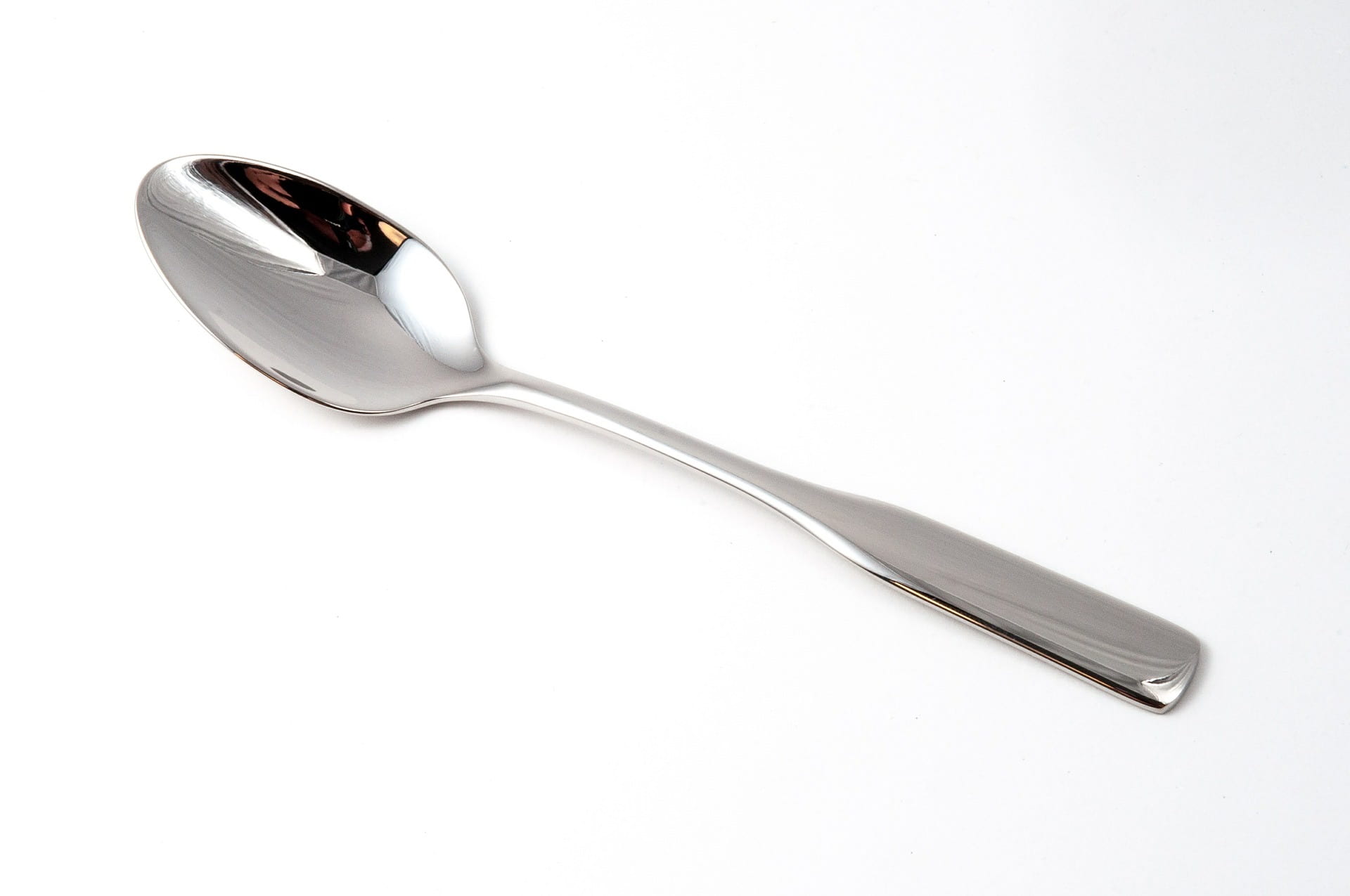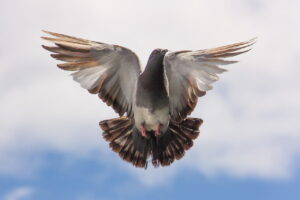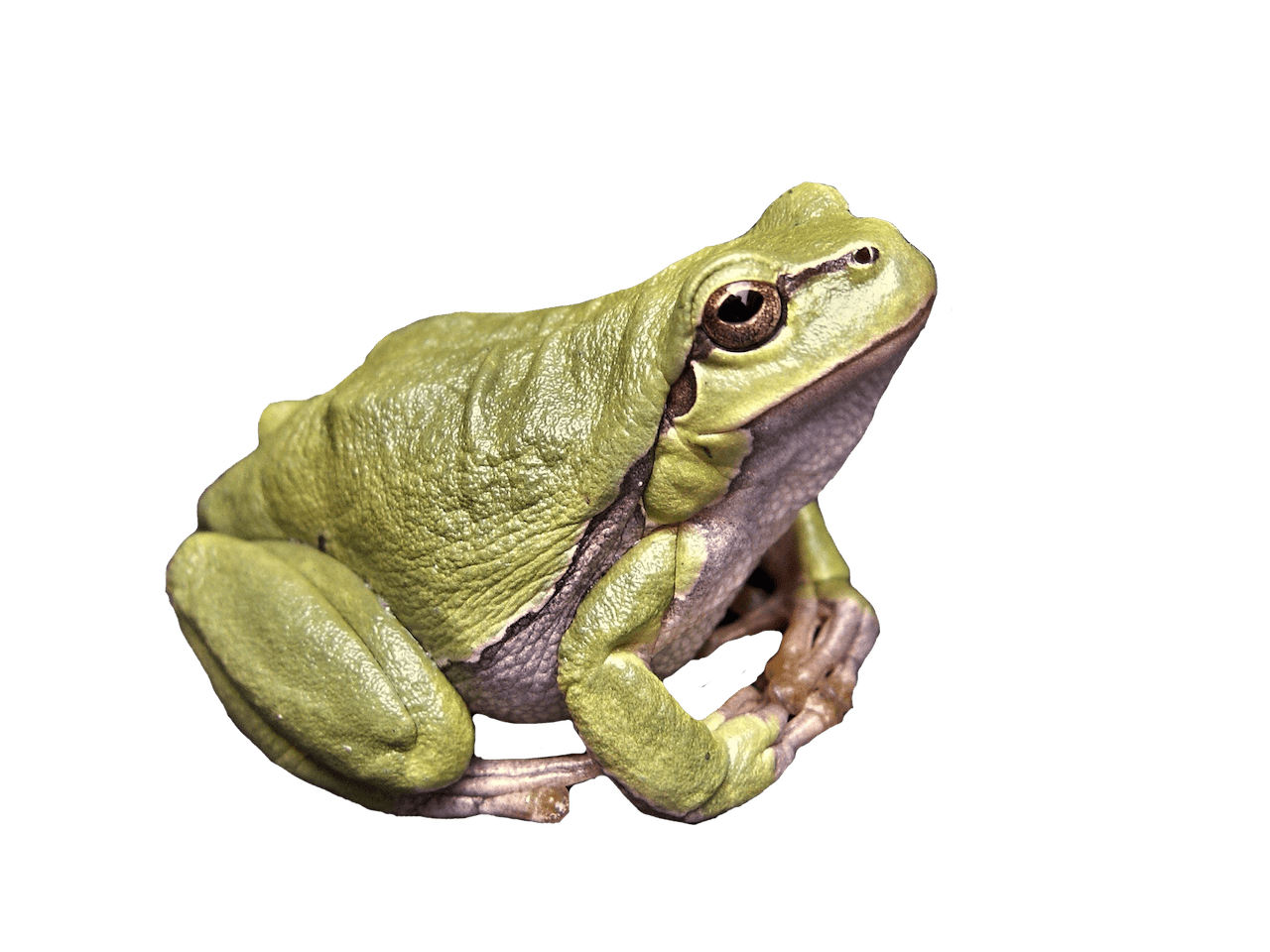Tag: Sarah McLaughlin ’23
Sonnet 130, But I’m Stuck Inside My Apartment
by The Cowl Editor on February 11, 2022
Portfolio

by Sarah McLaughlin ’23
The gray Nor’easter clouds block out the sun,
And biting winds turn all our faces red.
For one day, the snow’s white, the weekend’s fun,
The mattresses are dragged outside as sleds.
But frostbite stings, snow turns to gray from white;
Even hot chocolate from Dunks can’t warm our cheeks.
Trash littered on Guz Hill brings no delight
(It’s hard enough to keep our campus clean).
The weekend’s over, and so to class I go,
The crunch of ice an ever-present sound.
It’s dangerous, I must take care, I know—
But snow boots fail, and I end up on the ground.
On top of all of this, I just got dumped.
Tell Eliot February’s the cruelest month.
Small Talk
by The Cowl Editor on January 27, 2022
Portfolio

by Sarah McLaughlin ’23
Why do I always end up wanting to punch myself in the face after making small talk?
This new girl comes into work, and I ask her if it’s still raining because I’m leaving, and she says no, and so I stuff my raincoat into my backpack, awkwardly crouching over in the desk chair and sort of holding the backpack up with my feet and I say something dumb like “guess I won’t be needing this anymore,” and laugh as if it’s funny, and she sort of laughs too but in a way like she pities me, and then I say something about how I wish we would get fall weather soon and how I hate the summer, and that’s true, but why do I say hate? It’s such an aggressive and unnecessary word in that context, and then she looks at me and says, “Well, I think you’re alone in that, Dillon,” and I’m just left staring at her like an idiot wondering how she knows my name.
And then after I stare and she turns away to sit at a desk and her small gold hoop earrings swing a little and glint under the ceiling light, I remember she was in my freshman-year writing seminar; she was the girl I thought had a nice voice and said thoughtful things about everyone’s essays, and I always caught myself staring at her just like I am now. I can’t for the life of me remember her name.
But I can check the schedule. It’s Lexi.
I’m not surprised she works here. I remember now that I read her narrative essay in our seminar. She wrote about growing up in South Dakota and having a crush on the quarterback of her high school’s football team. It should’ve been so silly. But, somehow, she made it captivating. I wish I could remember it fully.
When I was in first grade, I hung out with a group of girls who liked to sing Taylor Swift songs while we maneuvered our way across ladders and beams and monkey bars. I can’t remember if I got into her music because my dad put it onto the old MP3 player he gave me for my sixth birthday or because they liked it first, but I learned all the lyrics to the songs we’d sing either way. Spring rolled around and a sign-up sheet was put on the bulletin board in our classroom for the talent show. I thought about writing my name down because I had just started learning guitar. Then I saw the four girls walk up to the wall together and pencil their names one at a time. When they came back over to sit at our shared table, I asked what they were going to perform. For some reason, in my head, it was going to be four individual acts. But then one of them said they were going to sing “Love Story” and explained how they were going to dress up, the taller two in suit jackets and ties that belonged to their older brothers and the shorter two in white dresses with their First Communion veils. After that day, they spent most recess periods rehearsing on the blacktop how they would hold hands and spin each other in circles. I started sitting with a kid named Tommy who would hide in the corner by himself and organize his Pokémon cards.
I remember some girls used to see me and Tommy in the corner of the cafeteria and ask if he was my boyfriend. I didn’t have a concept of what that meant except that he was a boy and gave me his duplicate Pokémon cards so I supposed he was a friend. But I knew that word meant something different—I knew from the smirks on their faces, the way they’d flash their new adult front teeth I didn’t have yet, the way Avril Lavigne sung about a similar word—girlfriend—in another song I had on my MP3 player; I just didn’t know what. So I shook my head and didn’t say a word and neither did Tommy, and I just hoped they’d leave us alone.
On my street there was a kid named Zach, who I think was my age but was at least twice my size. There is a little creek that runs in the patch of woods behind my house, and I liked to catch frogs. In the spring, especially, they weren’t too hard to find. Catching them was the tricky part, but it is a skill I’d mastered over the years.
I think it was that same spring when “Love Story” was all over the radio when I caught a frog and decided to make a little home for it in a Tupperware container—without the lid, of course, but I picked one with sides tall enough that it couldn’t climb out. I put a little mud from the creek bed at the bottom and plucked some grass from my yard. The frog seemed to like it—at least, after a few minutes, he stopped trying to escape. I was so proud of my little architectural creation that I felt a desire to show it off, for somebody else to see it and appreciate it just as much as I did. So I did something I didn’t do often and brought the frog to the front yard, away from the creek, and down to the sidewalk. I sat cross-legged there, and the sun beat down on us, but I wore a baseball cap and the brim of it kept the frog shaded.
Minutes later, a few kids on bicycles and Razor scooters rolled along the street, almost passing me without notice, but they stopped and stared down at the girl with grass stains on her knees and mud caked under her fingernails holding a Tupperware container.
“What the hell is that?” one of them asked, and it felt like someone had dropped ice down my shirt; my mom had told me to never use that word.
I lifted the container up to show them and probably shyly mumbled something, too, although who knows if they were even listening. They stared, and smiles grew on their faces. I smiled, too.
“What are you gonna do, kiss it?”
They laughed in chorus. And that’s when Zach tossed his bike to the side, reached down into the Tupperware, pulled out the frog, and in one furious but careless motion threw it onto the ground with a wet splat and squashed it under his foot.
I don’t remember how it looked. I know my eyes were open, but it’s like time has censored the image.
When I step outside, letting the heavy door fall closed behind me, it isn’t raining—Lexi was right—but it’s misty, and the gray clouds shielding the sun make it impossible to tell if it has already set.
Invocation of the Muse
by The Cowl Editor on December 9, 2021
Portfolio

Sarah McLaughlin ’23
It’s far too late for me to be lying on my back with my guitar in my lap and thinking about Homer.
Olive’s hanging out with some friends. She invited me, but I said no, to no surprise, and she told me to have a good night as she left with her purse and sensible flats. It’s not like she’s going to some wild Saturday rager; she’s going to sip Chardonnay and talk about Jane Austen with a couple of girls from the debate team.
I’m almost always invited. I feel bad that I almost always decline. When I mentioned once that I read Northanger Abbey, it piqued their interest, but I haven’t read anything else, not even Pride and Prejudice, and so I get left out of the conversation when it inevitably shifts to their unanimously elected, favorite author. Still, I enjoy the discussion when I can, though I never drink wine. I never drink anything. The one time I tried alcohol, the first weekend of freshman year, I had a panic attack and my roommate almost called 911. I convinced her I was fine while my mind told me I was asphyxiating and ended up sitting on the sticky floor of a locked bathroom stall with a damp cloth on my forehead, counting the seconds between breaths as drops of cold water trickled down my face.
When we first became friends, Olive used to tell me I was no fun, because truth be told, I am, and that means something coming from a girl whose idea of fun involves discussing the politics of the steel industry. But by now I think she understands and respects the fact that I don’t want to do anything. Well, maybe not respects, but she lets it be.
It’s not that I don’t want to do anything; I go to extracurriculars and to lunches at the mall and to see musicals at the community theatre. I simply draw the line at things I’ve never done before that have a high probability of ending in embarrassment. And that line happens to exclude a whole lot of things when one sip of hard seltzer is enough to shatter me.
You get drunk every now and then. Not frat-party drunk, that’s below you (you’d say), more like bottle-of-wine-in-bed-while-watching-a-Russian-film-with-subtitles sort of drunk. Do you remember how you called me once? Your dorm was a block away and you asked me if I’d bring you my copy of The Tempest because you knew I was reading it for class and you wanted to recite Prospero’s final soliloquy while standing on your bed and you were sad you didn’t know it from memory. I told you to go to sleep and not stand on your bed and that you could find it online if you really wanted. Then you started ranting about how your laptop could never compare to the weight of a physical book in your hands, and as you waxed poetic about weathered pages and cracked spines I laughed and laughed and thought you were going to cry.
The scene replays in my mind as my fingers run over the six strings, strumming a slow major seventh chord, going nowhere and meaning nothing. I think about Homer, how at the beginning of his epics, he opened with the invocation of the muse. I took some poetry classes thinking they would help me with songwriting, but they didn’t give me inspiration to write about anything grand or existential or even subtly poetic, like changing leaves or dust collecting on childhood bookshelves. I still write the same dumb lyrics about wine-drunk phone calls and I realize this is the only muse I can invoke.
I pluck an open B string and let it ring. Olive will come back soon, probably, and she’ll ask me how my night has been. I’ll say it was alright, and I’ll have written nothing.
The Fork Ran Away, But the Spoon Came Back for Revenge
by The Cowl Editor on October 28, 2021
Portfolio

by Sarah McLaughlin ’23
It all started with one simple question: Should you eat mac and cheese with a fork or with a spoon?
“A spoon, obviously,” Genevieve says. “It provides the utility for maximum scoopage.”
Britney rolls her eyes. “A fork can scoop, too, idiot. And you can stab the noodles. It gives you options.”
“Guys,” I interrupt. “This is so pointless.”
“Just like a spoon,” Britney mutters. I shoot her a glare.
“Let’s just all agree to disagree and go to bed,” I say, walking over to the kitchen with my empty bowl (and fork, because that’s obviously the right answer, but I wasn’t going to spend another hour fighting about it).
About thirty minutes later, we’re all tucked into bed (or, in my case, lying on top of my covers—even in late October with the windows open, the air in the apartment is somehow sweltering). I’m on my phone, and Genevieve and Britney have both fallen silent, so I figure they’re asleep, but then Genevieve hums softly.
“Do you guys remember that viral video from, like, 2009? ‘The Horribly Slow Murderer with the Extremely Inefficient Weapon’?”
“Is that the one where he killed the guy by following him around and beating him to death with a spoon?”
“Yeah,” Genevieve says. “See? Another reason why spoons are superior.”
“It’s literally called ‘horribly slow’ and ‘extremely inefficient.’”
“I’m going to murder you in your sleep with a spoon and then you can tell me how slow and inefficient it is.”
“Shut up, guys,” I mumble, rolling over onto my stomach. “I have an 8:30 tomorrow.”
Genevieve and Britney giggle in unison, but they do quiet down, and it’s only a few minutes before I succumb to sleep.
It seems like mere seconds pass before I wake up with a start. I swear I just heard something metallic, like a sword being pulled from its sheath, but maybe I’ve just been reading too much King Arthur for my English class. Still, it sends a chill down my spine, and I sit bolt upright.
It takes a moment for me to notice something thin and cold pressing against my neck.
My body freezes. I try to glance down, but whatever is touching me is too small to see. Is someone behind me? I don’t feel a warm presence or hear anyone’s breath. The room is pitch black save for the distant orange glow of my laptop charger, but I’m pretty sure if there was an arm holding something, I would be able to see it.
“Hello?” I whisper.
Hello, something whispers back. I don’t even know if I can call it a voice. It’s metallic, like the noise that must have woken me up, and it sounds like a metal utensil scratching and squeaking against a ceramic plate—one of those sounds that instantly sets my nerves aflame.
“Who—who are you?” I manage.
Who do you think I am?
The cold thing seems to press deeper into my skin. It feels sharper now.
“What?” I gasp. “Is this, like—a sentient knife?”
Try again, the voice says.
I think back to last night’s conversation, and dread grows in my stomach. “A—a fork?”
But as soon as I say it, I know I’m wrong.
You fool, the voice hisses. If only you had been on my side. I’ll make you wish you had defended my honor.
“Wait!” I exclaim, wincing at the pain against my throat. “You’re—you’re great for ice cream! And soup! And—and hot chocolate before it’s cooled down—”
But I’m too late.
Pigeons and Doves
by The Cowl Editor on September 16, 2021
Creative Non-Fiction
by Sarah McLaughlin ’23

There are countless bird-related trivia facts I like to spout over the dinner table, during walks to class, or in the delirium of three a.m. roommate conversations, but my favorite might be the fact that there is no scientific difference between pigeons and doves.
Did you know that the sooty-looking birds pecking at moldy hot dog buns between parked cars on the streets of New York are also known as city doves? Or that the one sent by Noah from his arc that returned with an olive branch (or sent by Utnapishtim in The Epic of Gilgamesh; yes, I paid attention in Civ) could also be called a white pigeon?
The reason I clarify that there is no scientific difference is because there is, of course, a difference in our minds. Sure, in the olden days one’s mind might conjure the image of a carrier pigeon, but in the twenty-first century we have much more efficient messaging technology, so the word “pigeon” in our brains remains generally confined to the realm of smoggy, overcrowded urban areas, perhaps with half-empty Dunkin’ bags littering the sidewalks. Doves remind us of quite the opposite scene—rainbows and receding flood waters, the hand of Aphrodite, an open window at a wedding or the Vatican, maybe a gentle, kind person. But in reality, doves are white pigeons, and pigeons are gray doves.
I write about this fact not to educate the public on avian taxonomy, or to explore the etymologies of these two words, or to make some grand allegorical statement about setting aside our differences and accepting every individual as an equal member of the human race—although these are all great things. Rather, I write simply to ponder the fact that culture is a strange thing, because most of us do not think about doves or pigeons on a daily basis and yet we immediately have all these preconceived ideas. However, if I were to ask one of my classmates to mentally divide ninety-six by twelve, an action consciously practiced, it would take longer for their mind to arrive at the answer than it would take for New York City hot dog bun-eating street pest to come when beckoned with the word pigeon.
I could argue that everything would be different if we only went back in time a few thousand years and asked Utnapishtim to send off a gray dove, but even if the legend is true, that’s not what I’m here for. To be honest, I’m not quite sure what my reason is. I guess I just felt like writing about pigeons and giving them a bit of the positive press they deserve. They were pretty useful before email, after all. But now, I just think they’re pretty, period. And you can feel free to disagree; maybe it’s the orange eyes or strangely fluorescent scaly feet that rub you the wrong way. Take a look at their feathers under direct sunlight, though, and watch how iridescent they are, shifting between hues of jade and amethyst.
Another fun fact—many birds have plumage that reflects ultraviolet light, and because their eyes are so sensitive to it, they use it to recognize one another. So, maybe, pigeons are even more beautiful to other pigeons than they can be to us. Each individual bird’s UV markings are unique, like fingerprints, so even if we see a flock of pigeons as a monotone mass, they are far from identical.
You might be wondering what inspired me to go off on this peculiar tirade. The reason is because there’s been a pigeon wandering around Slavin lawn for the past couple of days. Ever since I moved in, I’ve seen him strutting around each time I pass, bobbing his little head and probably looking for abandoned Dunkin’ bags. I wonder if he has a flock or has claimed the whole campus to himself. Either way, he doesn’t seem too upset to see us all back here. He stayed right beside me on the path for a few moments the other day and I slowed down my stride just so he could keep pace. People probably looked at me like I was nuts, but it was an unexpected peaceful moment in an otherwise rushed and stressful day. So if you happen to see the Slavin pigeon—Slavin dove, if you prefer—maybe you’ll stop for a few seconds to think about taxonomy or language or culture. Maybe tell him I said hi.
Mud Pact
by The Cowl Editor on October 29, 2020
Portfolio

by Sarah McLaughlin ’23
We could usually all fit underneath the slide.
It was stuffy and we were squished against each other like sardines, but we had enough room to do what we had to do. There were only five of us, after all. Only five of us were brave enough. We called the rest of the kids names since they didn’t want to join us. The ones who told on us to the teacher were the worst, but Miss Sparks never stopped us because she didn’t believe them. I think some of the other kids didn’t believe us either.
Tommy was the one who got the frogs. I don’t know where he found them. He always said he had a lake in his backyard and he’d swim to the bottom, but I never believed him. I think he caught them on the side of the road, because I’ve seen them flattened and dried up in the sun in the school parking lot.
A lot of kids called us weird, but Tommy was the weirdest of us all. Every day, he came to school with a Tupperware container with a red lid. I always wondered if he stole it from his parents, and if they ever found out what he was doing. Mine never did. Leo stopped doing it with us because he said his mom got mad when he threw up and had to get picked up from school early. I heard he had to go to the hospital and get a needle stuck in his arm.
I’d never had a needle stuck in my arm, and I had done it twice now. Some kids’ names had been picked more often—Sally had done it four times. Tommy had done it three, but I think sometimes he secretly wrote his name down twice. I’d seen him put two pieces of paper into my baseball cap as I held it out in the middle of our circle.
As soon as the bell rang for recess, we headed for the playground. We used the slide in the back, because it was dark and damp and Sally said that’s what the frogs like. I thought she was right, because Miss Sparks taught us about frogs in science class. We didn’t pay much attention that day since we were all giggling at each other, but I remembered her talking about their life cycle—how they start off in the pond as tadpoles and then grow legs. I wondered if that’s how I grew legs, too, and I just didn’t remember it.
That day, it was raining. We all squished ourselves a little closer together than usual since we wanted to stay dry. It pelted the tin slide above us and sounded like a bin of LEGOs falling on somebody’s head. Our light blue uniform shirts were so damp already that they looked more like navy.
My hat was wet, and so was the paper. Harry was supposed to bring his pencil, but he forgot, so after I tore the paper into five wet pieces we dipped the tips of our fingers in the mud and used it to write our initials. My “N” looked more like an “H.” I decided I wasn’t going to say anything if it got picked and they thought it wasn’t mine. I had eaten a bologna sandwich for lunch and was feeling a little queasy.
Once the papers were in the hat, I took it back and shook it around. Some of the mud had dried a little and fell off, but I figured it was okay. Louis was the one who drew the name. He picked out the paper, opened it, and said it was Harry. I held my breath. Harry nodded, water dripping from his hair and running down his face. His skin looked white.
Then it was time for Tommy to take it out. He unzipped his Spiderman backpack and took out the container. Before he opened it, I could only see a black shadow of it pressed up against the side. It looked like a big one.
When he took off the lid, it jumped. It landed in my hat, thankfully, so I grabbed it with my other hand and squeezed it tight so it wouldn’t escape. We all laughed, except Harry.
It was starting to squirm in my hand, so I held it out to Harry. He put his hands out like how Miss Sparks told us to hold them for Communion in church. I told him he needed to hold on tight or it was going to hop away. He nodded really fast.
I placed it into his hand, still holding on for a second, and then let go. He put his other hand on top to squish it like a sandwich. I wondered, if you put bread around it, if it would taste anything like bologna.
“Count of three,” Tommy said. He was always the one who said it.
“Wait,” Harry said. “I’ve never done it before. Does it taste really bad?”
“Yeah,” Sally said, while Louis said, “No.”
“Just do it,” I said. I didn’t want them to discover that it was maybe supposed to be my turn. While they were watching Harry, I grabbed the rest of the paper scraps from the hat and crushed them in my fist.
“Okay,” Harry said. “Okay. Okay.” He said “okay” a few more times.
“Do it,” Tommy said. “If you start crying, we’re gonna get caught.”
I think it was that idea that finally spurred him on. He opened his mouth wide, tipped his head back, and held his hands up above it. One of the webbed feet was dangling down, already on its way to his throat. Then he opened his hand, and it made a plop sound.
As soon as he swallowed—I saw the bulge in his throat—he screamed. Tommy reached over and clamped his hand over his mouth, and he didn’t stop. I thought Miss Sparks was going to hear him. But then he stopped, and when Tommy pulled his hands away, his lips were blue.
“I think I’m gonna throw up,” he said. He was really quiet. “I need to call my mom.”
“No, you don’t,” Tommy said. “If you throw up, just do it right here. You’re gonna get us in trouble.”
“I’m gonna throw up,” Harry said again. “I’m gonna throw up.”
“Ew,” Sally said. “If he throws up, I’m gonna throw up, too.”
“Shut up,” Louis said. “Everybody shut up. Miss Sparks is gonna hear us.”
I didn’t think anyone would hear us talking, because the rain kept pounding on the slide. But if someone threw up, somebody else would definitely see us.
“I hope I get picked next week,” Tommy said. “I’ll show you guys how it’s done. You’re all scaredy-cats.”
“Here,” I said to Harry. I passed him my hat.
Love Limericks
by Connor Zimmerman on February 14, 2020
Portfolio

Short and Sweet
by Sarah Heavren ’21
Master of the cleverest pun,
You make all the boring things fun.
I hope you know
And that I show
You’re loved by a certain someone.
Staycation
by Samantha Pellman ’20
What do I get him for Valentine’s Day?
Plan something special, they all say
So I booked a vacation
At the very best location
A ticket to Greece and it’s a one-way!
Glacier
by Jay Willett ’20
Frost gales frolic, shrouding all we could see.
Eyjafjallajökull explodes on the bended knee.
Not with fire, but with hope,
alone together on our slope.
One proposition, one question, and I’m finally free.
Money Can’t Buy Love
by Sarah McLaughlin ’23
There once was a broke college student
Who thought it would be rather prudent
To skip buying flowers
And instead work twelve hours
Which prompted his love life’s conclusion.
Dead Languages Don’t Get You Dates
by Sean Tobin ’20
I once tried to flirt in Italian.
By nature I’m no Latin stallion.
I learned Greek with ease,
Ancient Hebrew’s a breeze,
But for romance they get no medallion.
Fast Fiction: Dream First Date
by Connor Zimmerman on February 14, 2020
Portfolio

In six words or less write a story about your dream first date… Go!
Only us drowned in candlelight.
by Grace O’Connor ’22
A good laugh…all I need.
by Erin Venuti ’20
Netflix, Hulu, Amazon Prime, Disney+, and…
by Connor Zimmerman ’20
They laugh together, and she’s happy.
Clara Howard ’20
Stole my heart, then my wallet.
by Kate Ward ’23
Ends with plans for a second.
by Sarah McLaughlin ’23
First Lesson
by Connor Zimmerman on February 7, 2020
Portfolio

by Sarah McLaughlin ’23
How do I teach someone something that is beyond my own comprehension?
That question incessantly prodded my mind when I sat down the first day
Not at my usual seat at the keys
But instead in a chair beside them.
How do I explain that while it flows like a language, the words are beyond definition?
That thought pulsed through my head as she placed her small hands down
Hovering above keys she hadn’t yet learned to name
And stared at the book on the shelf.
How do I correct her when she makes a mistake, act infallible despite how I make them?
That worry made my fingers twitch as she pressed each ivory block with her own
From C, then to D, she began to sway
A simple melody, yet a comforting one.
The song in front of us is only two lines long, only takes a minute, one note at a time
But it’s a sequence of notes I learned years ago, when I turned the first page the first time.
How do I tell her this is only the beginning, the first sentence in a book we will write?
That is the wonder quieting my nerves as I sit there in silence and listen
Each note rings clear and crisp through the air
True and loud, without hesitation.
How do I talk about something so beautiful it is better left uninterrupted?
That is the issue today still arising when I sit down to teach someone to play
But right then, I simply waited for her to finish
To feel that unique prideful satisfaction.
I can’t help the smile that grows on my face as I observe her stern concentration
She pushes down on each key with precision, decision—and hits every one right.
Vacuuming Spiders
by Connor Zimmerman on January 30, 2020
Portfolio

by Sarah McLaughlin ’23
During his piano lesson, Grayson doesn’t really seem like himself.
I know he’s not particularly talkative, but he’s even more reserved than usual today. He looks at the music with stoic, sad eyes and takes longer than normal to pick up on the new concepts I try to teach him. I’m tempted to ask if everything’s alright, if he’s tired, or if it’s too difficult, but I keeping pushing it off. After he finishes this song, I tell myself. But I don’t.
Eventually, we have only five minutes left, and we’ve barely accomplished anything. I check my phone for the time, wondering if I should just wrap it up early—surely his mother, waiting in her car, wouldn’t mind.
“Alright,” I say. “So, just practice the same two pages for next week, okay?”
He doesn’t respond. He’s staring at the open book, completely still.
“It’s okay,” I say carefully. “I know we didn’t make a lot of progress today, but don’t feel bad. Sometimes music is really hard, and you have to take your time with it. It’s…” I trail off as I notice his eyes welling up. Oh, God, have I made him cry?
“Grayson?” I ask, trying my best to make sure I don’t sound like I’m about to burst into tears. “What’s wrong?”
He sniffs and shakes his head.
I shift in my chair to face him. “It’s okay. You don’t have to talk about it if you don’t want to. Do you want me to get your mom?”
He shakes his head again, and this time he opens his mouth. “My…” He speaks in the smallest voice I’ve ever heard. “My Gramma. She’s sick. Mommy says she’s going to be okay, but she looks scared.” A tear escapes his eye and rolls down his cheek. “I’m scared.”
I freeze. Am I supposed to try to comfort him? What do I say? This is a five-year-old kid, who apparently trusts me enough (more than his own mother?) to tell me what’s bothering him. I’ve never been good at helping friends who are in emotional crises or even just feeling little down—I’m the type of person who offers to grab a glass of water or a box of tissues rather than stay in the room and talk to someone. And if it’s a little kid? Forget it.
Tentatively, I reach out, making sure he doesn’t flinch before I lay my hand on his shoulder. “It’ll be okay,” I say. “Your Gramma will be okay. And you should talk to your mom. Even if she’s scared, too, it’s better to both be scared together.”
He sniffles again, but at least he turns to look at me. “What do you mean?”
I shrug. “Well, think about it like this. What’s something that you think is really scary?”
He pauses for a moment. “Spiders. Only the really big ones, though.”
I nod. “Okay. Spiders. I don’t like spiders, either. So if there was a really big spider right there—” I point next to his hand on the piano, and he quickly pulls it away. “—it’d be really scary. But if you show me the spider, I can tell you to keep watching it while I go get the vacuum.”
He laughs a little. “That’s what me and Mommy do. She vacuums the spiders. Sometimes she even screams.”
I smile. “Yeah? So, you see, when both of you are together, it’s less scary, right?”
He nods. “Right.”
I squeeze his shoulder gently. “So you should talk to her. Tell her what’s making you scared, and even if she is scared, too, she can still help you.”
He frowns. “But I don’t want her to vacuum Gramma.”
I can’t help laughing. “Don’t worry. She won’t. But she’ll give you a big hug, and you can give her a big hug, too, and then you’ll both be less scared. I promise.”
He looks at me with big, round eyes—bigger than scary spiders. “You promise?”
I nod. “Yeah. I promise.”
